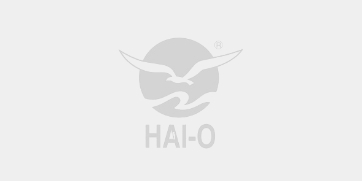Hai-O Enterprise Bhd's latest venture into property investment and development has raised concerns among investors. Its share price has shed 4.6% since it announced a collaboration on Oct 22 with Sierra Equatorial Development Sdn Bhd (SED). Linder the deal, Hai-O will sell 40% of its wholly owned unit, Hai-O Development Sdn Bhd, to SED, a builder-cum-property developer. SED, whose track record includes the revival of abandoned projects in the Klang Valley, will help obtain approvals from the authorities to facilitate Hai-O's foray into real estate.
SED will also spearhead real estate sales and marketing and offer the necessary expertise and skilled manpower to help Hai-O - a wholesaler and retailer of Chinese medicinal products - break into the property market, according to the announcement.
The investment community's response has been less than enthusiastic, with analysts asking whether the venture would further divert Hai-O's focus from its existing businesses. Although property development may help generate future earnings and reduce the cash-rich company's dependence on its more volatile multi-level marketing (MLM) business, there is concern that it might "add risk" to the group if it is not well executed.
The group's MIM business has been affected by more stringent direct marketing rules in Malaysia. In addition, Hai-O is still developing its business in Indonesia.
"We think the local MLM operations are still crucial to the group's earnings going forward given that the operations in Indonesia may take longer than expected to break even while the technology division, on which we are optimistic, would only contribute to its bottom line in two years," OSK Research analyst Eng Kar Mei says in a note to clients on Oct 28.
"The road to recovery for Hai-O's MLM business is longer than expected as membership growth and buying sentiment among members has slowed down further," she writes.
Meanwhile, Affin Securities writes in a report on Nov 2 following a meeting with Hai-O that the new business represents a completely new direction for the group.
"The rationale behind the new venture was to broaden Hai-O's earnings base. This would then help to buffer the bottom line should the core MLM division be subject to any further volatility in MLM regulations or consumer spending," it says.
OSK Research is retaining its "sell" call on Hai-O and values the shares at RM1.61. Affin Investment Bank also has a "sell" on the stock with a higher fair value of RM2.71 while RHB Research Institute has an "underperform" with a RM2.84 target price.
Hai-O managing director Tan Kai Hee declined to comment. He is the single largest shareholder in the company with a 9.75% direct stake while his indirect equity portion stands at 16.7%.
The group's real estate venture follows its move into the heat transfer technology business. In August 2009, Hai-O announced a five-year co-operation agreement with the Chinese Academy of Sciences to jointly undertake R&D of related technology and products. These products are intended for multi-industry applications, namely in the aeronautics and astronautics fields, besides the electronic and energy sectors.
The diversification into real estate and technology comes at a time when Hai-O's financials have weakened following slower MLM membership growth after tougher regulations on member recruitment were imposed.
Net profit and revenue more than halved to RM7.8 million and RM54.75 million respectively in 1QFY2011 compared to a year ago. Hai-O has guided that new membership growth had declined further to 1,000 members a month during the quarter from between 2,000 and 3,000 in the preceding quarter. Bumiputeras make up 90% of its membership mix.
The company's net assets per share stood at RM1.06. Hai-O is in a net cash position with cash and cash equivalents of RM52.52 million against borrowings of RM17.97 million.
Its list of freehold and leasehold commercial and industrial real estate assets in Selangor, Kuala Lumpur and Sarawak have a combined net book value of RM80.23 million, according to its annual report. Note that the company owns a vacant three-acre parcel of industrial land in Meru, Klang.
Established in 1975, Hai-O was listed on the Second Board of Bursa Malaysia in 1996 at an IPO price of RM3 a share. The stock was transferred to the Main Board in 2007.
Hai-O, which also manfactures pharmaceutical products, has over the years established foreign bases in China, the Philippines and Indonesia but it is believed its overseas operations are still in the infancy stage.
For comparison, Singapore-listed rival Eu Yan Sang International Ltd saw its net profit rise 13.8% y-o-y to RM4.13 million in 1QFY2011 while revenue was up 8.6% to RM57.62 million. The better numbers came as the company registered higher retail sales in core markets in Singapore, Malaysia and Hong Kong. Eu Yan Sang also derives rental income from its properties.
In August, the company acquired a 14.99% stake in Australia-listed Healthzone Ltd, a distributor and retailer of healthfood products for A$3.6 million (RM11.09 million). Eu Yan Sang's share price has more than doubled this year and traded at 95 cents a share last Wednesday for a market capitalisation of S$346.7 million (RM830.6 million).
While entrepreneurs often diversify their businesses, Hai-O's recent ventures outside its core business have been met with a degree of concern.
Affin Investment Bank notes that diversification into other businesses may help cushion impact from changes in retail spending or regulations in the MLM industry in the long term.
"However, in the immediate term, the long adjustment period for the stricter recruitment guidelines (more than six months) will continue to put a dampener on consumer purchases as well as stock sentiment. Risk of distraction from its core retail operations is also a concern'" it says.
For now, shareholders will be eagerly awaiting to see if Hai-O succeeds in ventures outside its core expertise.











